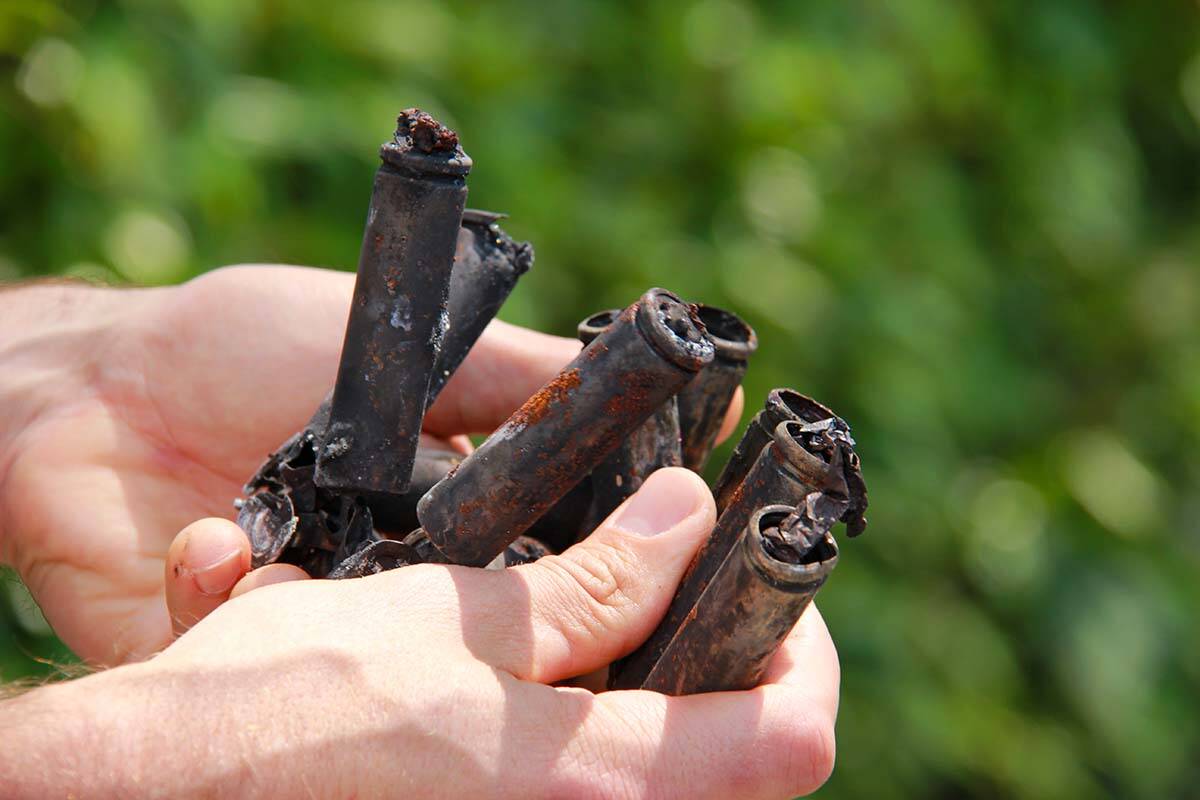Vancouver’s fire department is raising the alarm over an increasing number of fire deaths related to the overcharging and tampering of lithium-ion batteries.
It says from 2016 to 2021, the number of deaths caused by exploded batteries multiplied from six to 30. Of the seven fire-related deaths the city has seen in 2022 so far, five of them were caused by overcharging lithium-ion batteries, according to Vancouver Fire and Rescue Service.
The batteries themselves, which are widely used in cell phones, wireless earbuds, e-bikes, e-scooters and electric vehicles, aren’t the problem, the department says: it’s people misusing them.
“It’s the modifications, the charging, the incompatibility with other devices meshed together that create additional heat and then thermal runaway inside the battery,” public information officer Matthew Trudeau said during a media availability Monday (June 13).
He said sometimes people are tampering with the batteries to increase the speed of their bikes or scooters, or to make the battery charge faster. In one instance, he said someone modified their battery to triple the voltage. Damaged cords and chargers are also a problem, he added.
Fire Chief Karen Fry said another issue is the quality of batteries people are purchasing. Knock-off brands bought off Amazon, for example, shouldn’t be trusted, she said.
Trudeau explained that the batteries are often stored in cylindrical cells and when they overheat they explode like fire crackers.
“So you get a small fireball out of it, a small explosion, and these things will continually go off in your unit,” he said.
Because of the chemicals contained in the batteries, extinguishing these fires can be trickier too. Trudeau said water can be useful to tame the flames and cool the area, but dry chemical extinguishers are usually required.
The fire department addressed the growing issue Monday following the death of a man at an SRO, The Empress Hotel, in the downtown eastside Saturday morning. The cause is believed to be an overcharged e-bike battery.
READ ALSO: One dead, two injured after explosion, fire in downtown Vancouver hotel: officials
Fry said fires in SROs are of particular concern.
“You know they have only this one room full of contents and resources and they’re doing everything they can and we need to do what we can as a city and as a government to protect them as best we can.”
She said the fire department is meeting with partner agencies this week to address risks in SROs and how best to educate people on safe handling of lithium-ion batteries.
She said she also raised the issue with B.C.’s fire commissioner last week when he released the 2021 report on fire-related deaths.
“With where we’re sitting right now, we’re in big trouble,” she said. “We need to educate. We need to protect. And we need to save lives.”
READ ALSO: B.C. piloting fire dashboard to help identify communities most at-risk of blazes
@janeskrypnek
jane.skrypnek@bpdigital.ca
Like us on Facebook and follow us on Twitter.

